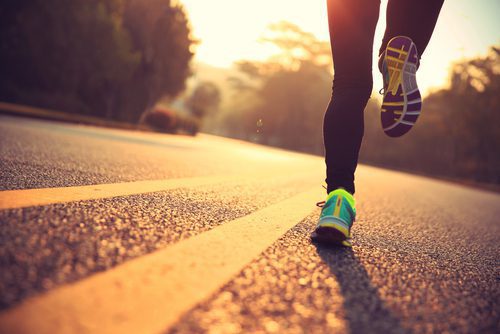“Why would anyone do this to themselves?” I wondered. I was standing at the finish line of a marathon, surrounded by throngs of people. Runners were completing the race, drenched in sweat, water and all kinds of performance powders and liquids. It seemed insane to me that anyone would spend hours running in the gruelling heat. Some other noble sport like tennis, perhaps. But running?! I had always disliked running. Correction, I had always despised running. I uncovered these strong feelings in my first year in secondary school.
That year, I was forced to do the 1,500 metres race – the longest race of the annual inter-house sports competition. One of the teachers must have appraised my physique and determined that I had one suited to ‘long distance’ running since I was registered for the race without my prior knowledge. My passionate pleas of inexperience and lack of stamina fell on deaf ears and I soon found myself at the starting line of the race in my oversized blue sportswear. The pit in my stomach only grew as I watched the other students at the line hop from foot to foot and contort their bodies into different stretches. Distantly, I could hear my House Captain offer some vague advice on maintaining a pace throughout the race. Unless she could go back in time to change my body’s physiology, I could not see how her words would help me maintain any sort of winning pace.
Everyone besides the athletes were asked to leave the track, and the runners were asked to get on their marks for the race. I crouched unto the dust and dug the spikes of my shoes into the ground. That was supposed to propel me forward, wasn’t it? I don’t recall the start of the race. I remember that the first 200 metres were not that bad. I even thought to myself, “Maybe I can do this…” Maybe I was a runner, but 400 meters into the race, my initial self-assessment was confirmed: I was not a runner. I knew I could not finish the race. I had to devise a way to get out of the race and get out honourably. Unfortunately, strategising was also becoming increasingly difficult due to the shortage of oxygen to my brain.
I had to do something, and I had to do it fast. And so, at 700 meters and in dead last position, I ‘fainted’. Today, if you were to ask me what it feels like to lose consciousness, I’d be unable to give you an answer. This is because I’ve never actually fainted in my life. Coming in last, with no shot at glory and increasingly diminishing oxygen, there was really no point in finishing that race. So, I did what I saw in the movies and crumpled to the ground. I kept my eyes shut as hands lifted me off the ground. I kept them shut as someone propped me up on the side of a tree and tried to rouse me.
Finally, after what I assumed was the proper period of unconsciousness, I moaned and peeked out through half-closed eyelids. The looks on the faces ranged from mild concern to annoyance, but I didn’t care. I was out. People endure unusual amounts of discomfort for things they consider to be worth it. Authors seclude themselves, deprived of modern technology, to write their next masterpiece. Personnel of the armed forces endure gruelling trainings as they train to serve their countries. Pain ceases to be a stopping point and is simply accepted as necessary for development. I proudly and vocally nurtured my hatred for running for a long time. I scorned people who ran for leisure. Then in university, I started competing in sports.
Eventually, I learned that running was one of the best ways to build the endurance I needed to be good at my sport and so I started running (by choice!). I knew that the pain was necessary for endurance which would develop my character and help me be the best athlete I could be. Pain becomes bearable once it has a purpose to serve. One can never claim to enjoy pains, just like I could never claim to enjoy running. It just needed something worth running for.
Written by Ugonna Iheme
